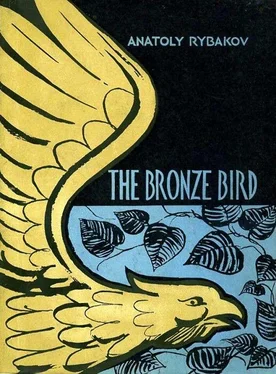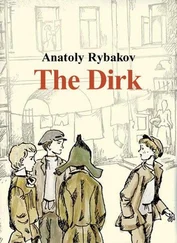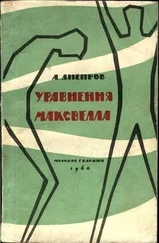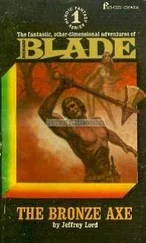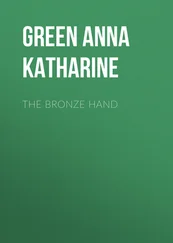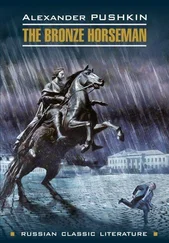Anatoly Rybakov - THE BRONZE BIRD
Здесь есть возможность читать онлайн «Anatoly Rybakov - THE BRONZE BIRD» весь текст электронной книги совершенно бесплатно (целиком полную версию без сокращений). В некоторых случаях можно слушать аудио, скачать через торрент в формате fb2 и присутствует краткое содержание. Город: Moscow, Год выпуска: 1956, Издательство: Foreign Languages Publishing House, Жанр: Детские приключения, Детектив, Исторические приключения, на английском языке. Описание произведения, (предисловие) а так же отзывы посетителей доступны на портале библиотеки ЛибКат.
- Название:THE BRONZE BIRD
- Автор:
- Издательство:Foreign Languages Publishing House
- Жанр:
- Год:1956
- Город:Moscow
- ISBN:нет данных
- Рейтинг книги:5 / 5. Голосов: 1
-
Избранное:Добавить в избранное
- Отзывы:
-
Ваша оценка:
- 100
- 1
- 2
- 3
- 4
- 5
THE BRONZE BIRD: краткое содержание, описание и аннотация
Предлагаем к чтению аннотацию, описание, краткое содержание или предисловие (зависит от того, что написал сам автор книги «THE BRONZE BIRD»). Если вы не нашли необходимую информацию о книге — напишите в комментариях, мы постараемся отыскать её.
THE BRONZE BIRD — читать онлайн бесплатно полную книгу (весь текст) целиком
Ниже представлен текст книги, разбитый по страницам. Система сохранения места последней прочитанной страницы, позволяет с удобством читать онлайн бесплатно книгу «THE BRONZE BIRD», без необходимости каждый раз заново искать на чём Вы остановились. Поставьте закладку, и сможете в любой момент перейти на страницу, на которой закончили чтение.
Интервал:
Закладка:
"I mean it," Misha said. "There's no treasure near those four trees and there never was and never will be."
Genka and Slava continued staring at Misha-Genka with astonishment, Slava with inquiry.
"What are you staring at me for?" Misha demanded. "There's no treasure, that's all."
"Yes... but... what about the drawing, and the 'countess,' and everything we've done?" Genka mumbled.
"She's no countess!" Misha replied.
"But how do you know there's no treasure where we've been?" Slava asked.
"Here's how."
And Misha told his friends the story he heard from the doctor.
It was a cruel blow. The boys saw themselves as miserable fools, half-witted dreamers. How would they look people in the eyes? True, nobody knew anything, but all their friends had seen how mysteriously they had been behaving. Would they have to part with the hope of ever getting to the bottom of a secret nobody could solve? It was awful, to say the least!
No sooner had Misha unburdened himself than he felt better. It was as though he had thrown a heavy weight off his shoulders.
"It's a pity," Slava said at last, "yet it's what we should have expected. People have been looking for that treasure for ages and it was silly of us to think we could find it."
"That's the way things always turn out," Misha said with a shrug. "A lot of people keep looking until somebody stumbles across the thing everybody is looking for. That somebody could have been us. But it wasn't, worse luck."
Genka refused to give up the idea that there was buried treasure. He was on the verge of tears.
"But there is buried treasure around here. The diamond was hidden! We've simply got to look for it."
"But where?"
"Where? Say, in the woods," Genka replied hesitantly.
"The woods have been dug up across their length and breadth. If the diamond exists, it is not in the woods. Of course, it is possible that the countess and the man in the green suit know where it is. As a matter of fact, do you know who the man in the green suit is?"
Misha told his friends of his suspicions.
"Of course," Genka said, his enthusiasm rising. "He is the count's son. That's clear as day. He's come for the diamond. And he's in league with the 'countess.' "
Slava, who had been attentively listening to his friends, said:
"If the 'countess' knew where the diamond was hidden, she would have dug it up long ago. A diamond can be kept anywhere. My idea is that the 'countess' doesn't know where the diamond is and neither does the count's son, if he really is the count's son. They're looking for it like the boatman and everybody else. But none of them can find it. And I don't think we can. The drawing was our only hope. And now that hope's gone."
"Yes, you're right," Misha mused, "nobody knows where the diamond is hidden. Nobody could solve the riddle set by the old count. But there must be an answer to the riddle! All the people who tried to solve it looked to the drawing, to the lines on it, as their guide, but the lines are just a blind, simply a false track. Perhaps the answer is not in the lines but in the eagle. The bird is supposed to show where the hiding-place is. And nobody paid any attention to it. That is probably why they haven't found anything. Drawings such as these never have anything superfluous, anything accidental in them. Everything must have a meaning."
"What are you gazing at the drawing for?" Genka asked. "It's clear enough that it's a sham."
"Yes," Misha agreed, "but still I wonder why the eagle's been drawn in such a funny way. Don't you think it's strange?"
The friends again turned their attention to the eagle. But it told them nothing. So far as they could see, it was a drawing of an ordinary eagle..-'
Misha remembered what Boris Sergeyevich had said about the bird, and Korovin's doubts concerning it.
"Incidentally, not everybody is sure" it's an eagle. Korovin said he didn't think it was, and he was born and bred on the Volga where you find a lot of eagles. Boris Sergeyevich claims it's not an eagle but a vulture. To be more exact, he said the bird has the head of a vulture."
Genka reluctantly agreed.
"Perhaps the head. But in everything else-it's an eagle. You may rest assured that I know what I'm talking about."
Indeed, Genka could be believed. Not counting physical training, biology was the only subject he was good at. He was the monitor of the biology circle and spent a great deal of time in the school's zoo.
"It's quite an ordinary eagle," Genka continued, "perhaps just a bit bigger than a steppe eagle. Therefore, it's a golden eagle."
"All right, fellows," Misha said, "here's.how I look at it. The lines in the drawing only led people away from the scent; therefore, we have to try and guess what the shading stands for. Each of us has a copy of the drawing. So let's think."
"The shading on mine is all wrong," Genka complained. "How am I going to think?"
Chapter 62
KHALZAN
The boys began to think. The truth of the matter was that the entire troop began to think. Not about the shading, but about the bronze bird. They tried to place it. That task had been set by Misha. There were some very bright youngsters in the troop, who, Misha felt, could make an important contribution. Besides, it was hard to keep everything secret. Getting the troop to think of the bird was one way of diverting attention.
Soon the troop split into two factions.
One of them, headed by Genka, held that the bird was an eagle. True, the head was not quite usual, but that was no more than a bit of the sculptor's fancy.
The second faction, lead by the Bleater, considered that the bird belonged to the vulture family. They conceded that its body was somewhat short and stumpy for a vulture, but that was the result of the sculptor's ignorance.
"Look at the shape of its head," the Bleater said. "What eagle has such a long neck or such a big, flat and bald head? It might be a condor, a buzzard or simply a black or white-headed vulture. Naturally, if it was alive or stuffed we would know by its feathers and colouring. But the head definitely indicates that it belongs to the vulture and not the eagle family."
"You're making a mistake," Genka said. "Where have you ever seen such small condors? The span of a condor's wings is nearly three metres, while this bird's is hardly two metres. I agree that the head is a little strange, but in everything else it's an eagle. A so-called true eagle. The species includes the golden eagle or khalzan, the burial-ground eagle or karagush, and the steppe eagle, which is also known as the kurgan eagle. Then you have buzzards, but they are small. Therefore, this bird is a true eagle."
The factions argued all day long. As proof, each pointed to the bird's appearance, its habits, the ways it built its nest and reared its young and the kind of food it ate. As examples, they even cited novels where birds carried away not only children and lambs but also horses and hunters with all their equipment.
They argued heatedly. All the more because each faction was headed by a boy who always liked an argument-Genka and the Bleater. Matters reached a stage where the leaders of the two factions nearly came to blows. Genka called the Bleater a white-headed vulture and the Bleater called Genka a khalzan.
"Hey, white-headed vulture," Genka shouted, "come here. I'll show you what's what!"
"Cheese it, you wretched khalzan," the Bleater responded.
"You ought to be ashamed of yourselves," Misha said, trying to pacify them. "Can't you discuss things calmly, without flying off the handle? We're conducting a serious investigation, but you're becoming personal. Imagine what the Academy of Sciences would have been turned into if real scientists behaved like this!"
"He called me a vulture!" the Bleater said, defending himself.
Читать дальшеИнтервал:
Закладка:
Похожие книги на «THE BRONZE BIRD»
Представляем Вашему вниманию похожие книги на «THE BRONZE BIRD» списком для выбора. Мы отобрали схожую по названию и смыслу литературу в надежде предоставить читателям больше вариантов отыскать новые, интересные, ещё непрочитанные произведения.
Обсуждение, отзывы о книге «THE BRONZE BIRD» и просто собственные мнения читателей. Оставьте ваши комментарии, напишите, что Вы думаете о произведении, его смысле или главных героях. Укажите что конкретно понравилось, а что нет, и почему Вы так считаете.
